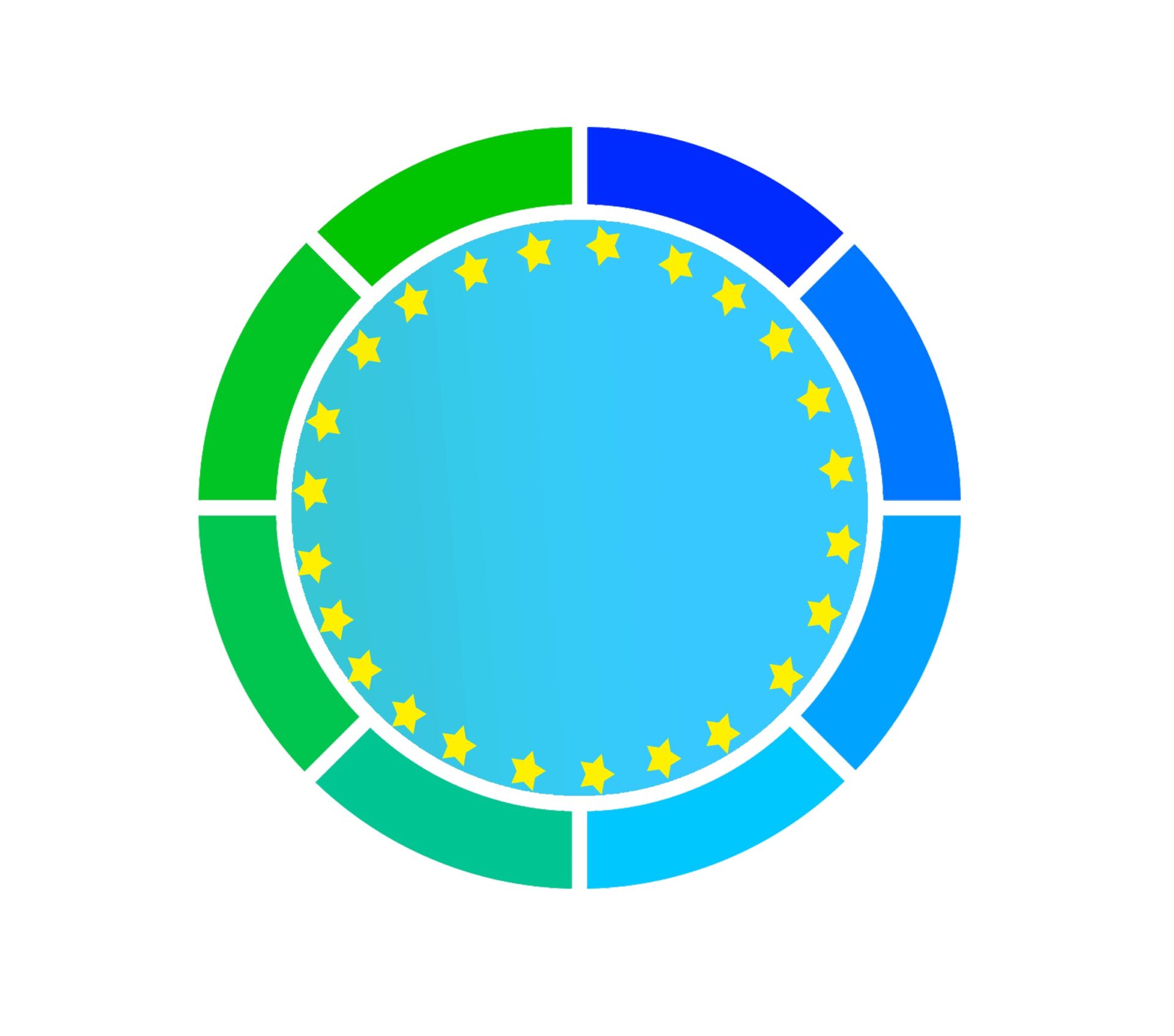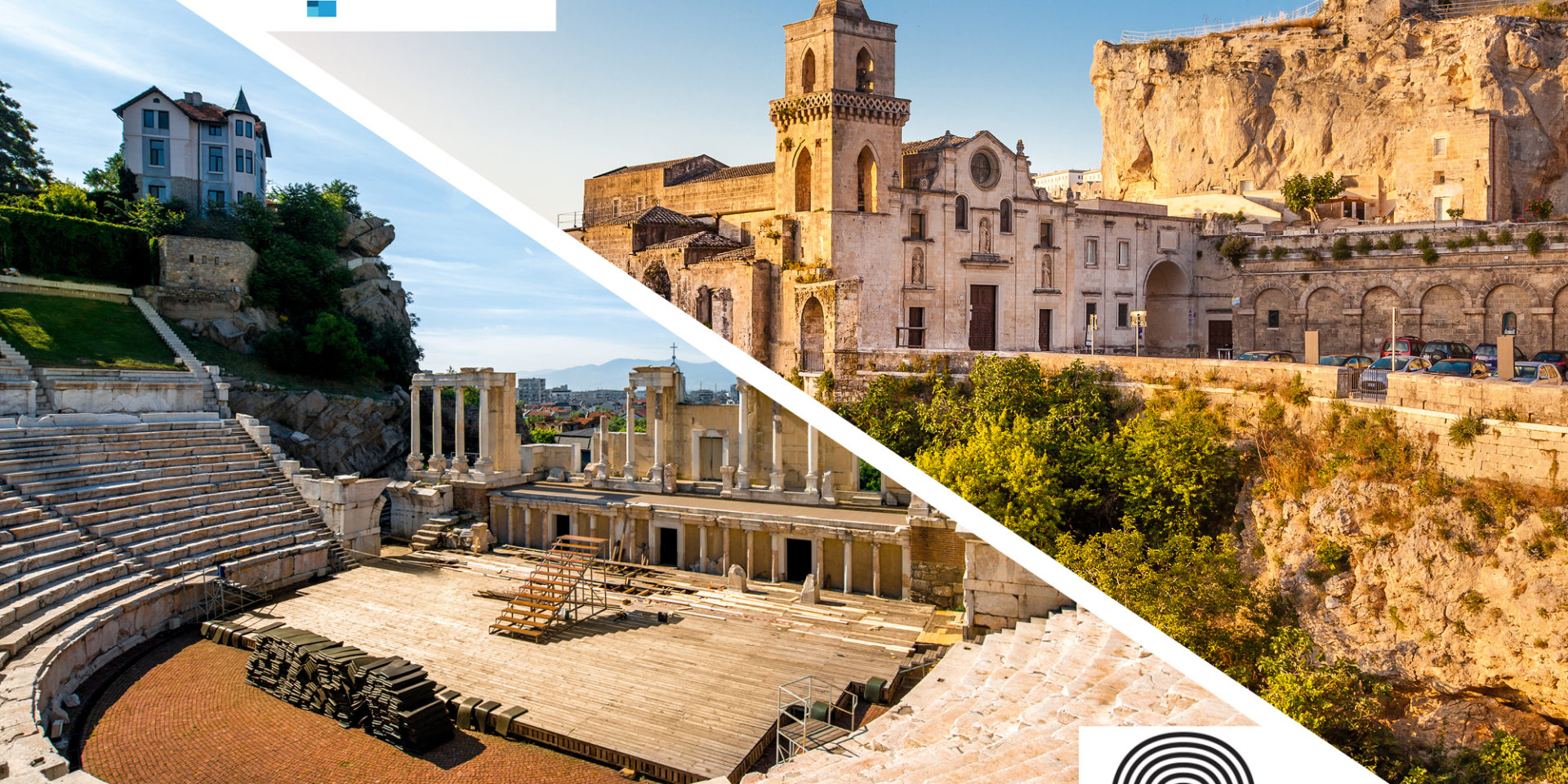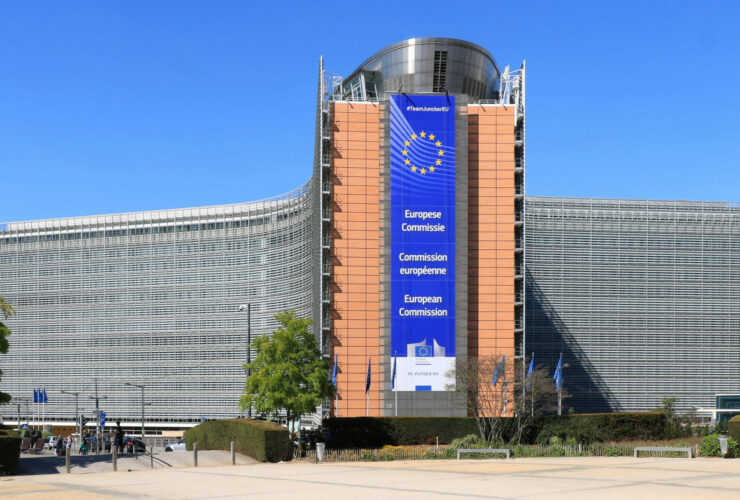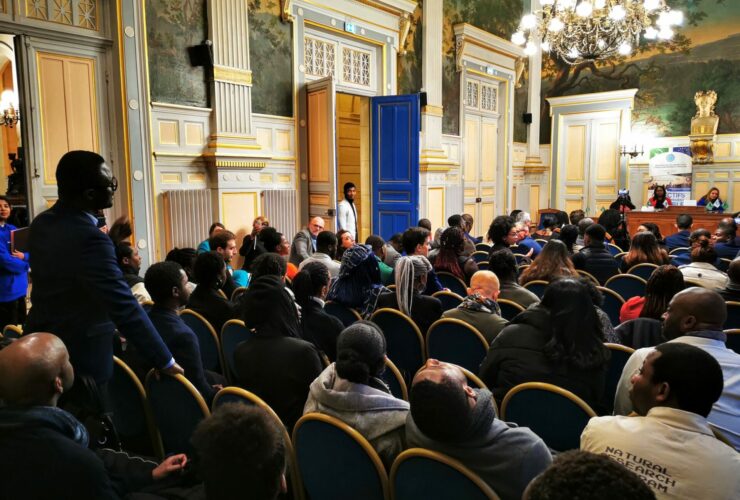
Organisation des Jeunes pour l’Union Européenne et Africaine
“Ex-Post evaluation of the 2019 European Capitals of Culture (Matera and Plovdiv)”
Vous trouverez d’abord le rapport en français puis ensuite en anglais.
Intéressée par les questions culturelles européennes et les moyens de renforcement du lien inter-étatique des Etats-membres de l’Union, les problématiques liées aux Capitales européennes de la culture (CEC) interpellent notre organisation au plus haut point. Nous nous sommes alors naturellement penchés sur l’évaluation des effets économiques, sociaux et politiques de la nomination de Plovdiv, en Bulgarie, et de Matera, en Italie, en tant que CEC 2019, dans leur environnement proche : local, régional et national.
L’idée de créer le statut de Capitale européenne de la culture date de 1985 et a pour but de renforcer le dialogue inter-national des Etats-membres de l’Union par la promotion et la rencontre des cultures européennes nationales et régionales1. Plovdiv et Matera présentent ainsi un potentiel culturel immense, notamment en raison de leur ancienneté, qui les classe parmi les plus vieilles villes d’Europe et du monde. Voici alors ci-après, nos recommandations pour un accomplissement plus complet des objectifs des CEC, ainsi que pour une amélioration de la plus-value européenne de ces événements.
(1) https://ec.europa.eu/programmes/creative-europe/actions/capitals-culture_fr (site de la Commission Européenne), consulté le 5 juin 2019.
1. Le choix des villes-capitales
Il nous est apparu que le choix de la ville-hôte des événements culturels d’une Capitale européenne de la culture pouvait être repensé, à la fois en termes d’utilité politique pour l’Union européenne (1.1.), ainsi qu’à travers le prisme d’enjeux économiques et sociaux plus locaux (1.2.).
1.1 Renouveler la confiance dans le projet européen : le choix de villes et régions « eurosceptiques »
Grâce aux témoignages que nous avons pu récolter auprès de citoyens Bulgares et d’habitants de Plovdiv2, nous avons établi que de manière générale, les populations locales se sentaient davantage concernées par le projet européen lorsque leur ville était choisie en tant que Capitale européenne de la culture. En effet, les événements qui y sont liés, organisés à l’initiative de l’Union, sont des actions directement tangibles de ce projet et sont ainsi perçues comme « concrètes » par les citoyens indigènes et les touristes visitants.
Il est pour nous nécessaire de généraliser cette solution. Particulièrement, à l’heure où l’Union européenne est qualifiée de « bureaucratie » et où elle souffre de l’image d’une organisation « déconnectée » des « réalités de terrain » et de la « vie quotidienne » de ses habitants.
Il est donc, à nos yeux, essentiel de travailler sur la promotion de ces actions « tangibles » de l’Union, principalement dans des pays et régions « eurosceptiques » tels que la Bulgarie et l’Italie. Ainsi, lors des élections européennes de 2019, le Mouvement 5 étoiles a par exemple été élu en tête en Italie du Sud dans la circonscription de Matera3. Les régions de Matera et de Plovdiv sont en effet empreintes d’un fort sentiment d’identité nationale et les CEC permettent de lutter contre leur populisme et leur euroscepticisme en prouvant, par la pratique, que l’Union européenne promeut la cohabitation de l’identité européenne et des particularismes culturels nationaux, tel qu’affirmé dans l’article 2 alinéa 1-a de la décision 445/2014/UE du Parlement européen et du Conseil du 6 avril 20144, relative aux CEC.
Nous proposons ainsi que le panel d’experts en charge de la désignation des CEC, tel que défini dans la décision précitée, concentre ses choix sur des villes situées dans des régions ou pays où se développent euroscepticisme et populisme. Pour ce faire, nous proposons d’ajouter un alinéa 6 à l’article 5 de la décision précitée et ainsi, modifier les critères d’éligibilité des villes en tant que CEC. Ce nouvel alinéa irait dans le sens de l’imposition d’une condition préalable d’euroscepticisme régional ou national pour prétendre au statut de candidat de CEC. Il pourrait par exemple être formulé de la sorte : « Ville, région ou pays dont le lien avec l’Union européenne doit être retrouvé ou renforcé », et pourrait s’évaluer par l’identification politique générale des principaux élus sortants de ces régions (nous laissons naturellement le soin à l’expertise de la Commission de reformuler ce critère et de trouver des modalités d’évaluation plus pertinentes si besoin est).
Nous invitons la Commission européenne à mettre en place cette modification dès que possible, dans la mesure des contraintes temporelles et administratives qui lui ont imposées. Nous pensons qu’une action symbolique forte pourrait être de réévaluer sur la base de ce critère, la désignation des villes choisies dès post-2022, d’autant plus qu’une place est devenue vacante pour l’une des deux CEC 2023 depuis l’évincement de la candidature du Royaume-Uni5, et que le nouveau cadre de la décision précitée ne s’appliquera que d’ici l’année prochaine. Nous sommes conscients que la Commission risque de devoir braver les protestations des villes pré-désignées mais nous considérons néanmoins que c’est un coût acceptable, considérant la plus-value politique européenne qui en résulterait.
2 Annexes
3 https://wikipedia.org/wiki/Elections_européennes_de_2019_en_Italie, consulté le 5 juin 2019
4 https://eur-lex.europa.eu/legal-content/FR/TXT/HTML/?uri=CELEX:32014D0445&from=FR, consulté le 3 juin 2019.
5 https://fr.wikipedia.org/wiki/Capitale_europ%C3%A9enne_de_la_culture, consulté le 5 juin 2019.
Nous pensons ainsi qu’il est urgent et encore temps de mettre cette mesure en place, notamment au regard des résultats des élections européennes de 2019 qui ont, une fois de plus, été marqués par un score plus qu’inquiétant des partis dit « eurosceptiques » et « populistes ».
1. 2 Répondre à des besoins économiques et sociaux spécifiques et localisés : le choix de villes en manque de cohésion sociale, en forts besoins économiques et en demande de reconnaissance culturelle
Au-delà de ces considérations politiques globales, la plus-value européenne pourrait aussi être promue par l’amélioration des conditions matérielles d’existences des citoyens de ces villes et par la reconnaissance culturelle légitime à laquelle ils aspirent6.
Les travaux de Robert Palmer et Greg Richards7 ayant montré l’impact positif en termes économiques et sociaux des CEC, il nous apparaît essentiel de choisir en priorité des villes dont ces besoins ne seraient pas comblés. Par ailleurs, lors de nos entretiens avec des habitantes de Plovdiv, beaucoup ont communiqué leur désarroi quant à la méconnaissance générale du potentiel culturel que présentait leur ville8. De même, elles se sont félicitées d’une augmentation générale de l’activité économique de la ville et d’une baisse du chômage9. Par ailleurs, Plovdiv est une ville de forte ségrégation sociale, matérialisée par la présence du plus grand bidonville de populations Roms de Bulgarie10. Cette difficulté face aux enjeux économiques et sociaux est également applicable à Matera, dont la région avoisine les 15% de taux de chômage11. Nous pensons ainsi que le choix d’une CEC doit donc être priorisé pour les villes avec un potentiel culturel non exploité à sa juste mesure et dont les besoins économiques et sociaux sont flagrants.
Ainsi, l’objectif de convergence économique12 et de lutte contre la pauvreté et l’exclusion sociale13 de l’Union ne pourra qu’en être renforcé.
Néanmoins, nous sommes conscients que plus la ville est en difficulté économique et sociale, plus sa capacité d’organisation des évènements de la CEC sera faible. C’est pourquoi nous rejoignons les conclusions du rapport Palmer/Rae Associates de 2004, dans la mesure où nous soutenons l’idée d’une plus grande aide financière et technique de la Commission pour ces villes si elles n’ont pas la capacité d’assumer seules le statut de CEC.
6 Annexes : enquêtée numéro 1
7 European Cities and Capitals of Culture, Study Prepared for the European Commission, PART I, Palmer/Rae Associates, Robert PALMER, août 2004, pages 25-37
8 Cf. note 6
9 Cf. note 6
10 http://www.lefigaro.fr/international/2012/08/23/01003-20120823ARTFIG00446-dans-les-rues-du-plus-grand-ghetto-rom-des-balkans.php, consulté le 6 juin 2019
11 https://www.ladocumentationfrancaise.fr/cartes/liste/italie, consulté le 6 juin 2019
12 Objectif que nous observons notamment en filigrane du Fond européen de développement régional
13 Article 153 alinéa 1-j Traité sur le Fonctionnement de l’Union Européenne
En somme, la plus-value européenne de cette mesure se fera à travers deux vecteurs. D’une part, par celui du sentiment que l’Union européenne œuvre à l’amélioration de la qualité de vie de ses citoyens et d’autre part, par celui de la baisse de la frustration relative générée par l’impression d’un manque de reconnaissance du patrimoine culturel de sa région/ville ou pays.
2. L’amélioration de la programmation évènementielle des Capitales européennes de la culture
Après avoir développé des aspects généraux sur le choix des CEC, il nous a paru intéressant de nous pencher sur le contenu même des évènements y étant liés. Nous avons alors remarqué un manque de représentation des minorités culturelles (2.1.), ainsi qu’une durée de programmation qui nous a semblé trop courte (2.2.). Ces réflexions ne concernent néanmoins que Plovdiv et ne se prêtent pas à une généralisation à Matera.
2.1 Des minorités à représenter
En parcourant le programme des évènements prévu dans le cadre de la CEC à Plovdiv, il nous est apparu de manière flagrante qu’aucune manifestation n’était prévue pour valoriser la culture Tsigane14. Or, considérant que Plovdiv abrite le plus grand quartier Rom de Bulgarie15, nous nous sommes étonnés de cette non-représentation de la culture de cette minorité, pourtant très présente dans le pays et plus encore, dans la région de Plovdiv.
C’est pourquoi nous appelons à une représentation renforcée, voire obligatoire, des minorités culturelles présentes de manière pérenne sur le territoire de la CEC dans la programmation des manifestations culturelles. Ceci permettrait de proposer une plus-value européenne non négligeable, en s’approchant, ici encore, de l’objectif de non-exclusion sociale demandé par le TFUE16.
2. 2 Un calendrier à rallonger
De la même manière, en étudiant le calendrier des évènements de la CEC à Plovdiv17, nous avons pu déplorer l’exploitation non-optimale d’un grand potentiel culturel : le potentiel saisonnier. En effet, si théoriquement, la décision 445/2014/UE du Parlement européen et du Conseil du 6 avril 201418 prévoit une période de 9 à 13 mois pour la tenue de la CEC, il apparait clairement que le nombre d’évènements tenus par mois à Plovdiv décroît fortement au cours de l’année, pour ne plus y en avoir aucun en décembre.
14 https://plovdiv2019.eu/en/platforms, consulté le 4 juin 2019
15 Cf. note 10
16 Cf. note 13
17 Cf. note 14
Ainsi, nous relevons qu’un nombre non négligeable de pratiques culturelles liées aux saisons (en l’occurrence, à l’hiver bulgare) qui offriraient un potentiel touristique et pédagogique conséquent (célébrations noëliennes (19), pratique du patin à glace sur les rivières gelées, etc), ne sont pas exploitées dans leur plein potentiel. C’est pourquoi nous demandons à la Commission d’encourager, dans la mesure de ses moyens, l’allongement des périodes de festivité liées aux CEC, afin de profiter pleinement de toute la culture que les Etats-membres de l’Union européenne ont à offrir. La plus-value européenne de cet allongement serait évidemment de permettre aux citoyens de l’Union de connaître de manière pleine et entière, les cultures des autres peuples européens, sans en avoir un aperçu tronqué ou lissé.
Ainsi, ce travail est une synthèse des impressions générales que nous avons pu dégager dans la mesure de nos moyens. Certains détails et subtilités dont peut disposer la Commission ont pu évidemment nous échapper (par exemple en ce qui concerne le ressenti subjectif des habitants de Matera en tant que CEC). Nous espérons néanmoins qu’en croisant nos impressions avec celles d’autres acteurs de la société civile, nous pourrons aider la Commission européenne et l’orienter sur certaines pistes de travail qui nous sont chères, en tant que citoyens européens directement concernés et intéressés par ces questions.
David ANTONI,
Chargé des relations avec les institutions européennes,
Organisation des jeunes pour l’Union Européenne et Africaine,
18 Cf. note 4
19 https://www.bulgaria-france.net/culture/traditions/koleda.php, consulté le 6 juin 2019
Annexes : entretiens par messagerie instantanée avec des habitantes de Plovdiv (sélection des passages les plus pertinents)
Enquêtée numéro 1 (3-5 juin 2019) :
[…]
David ANTONI : I’m actually member of and association working on some public consultations of the European Commission and I would like to know how this event can help the economic, cultural and social development of the City.
[…]
Enquêtée : And as a start with many tourists money come and the circle starts with economical and social development. And if there are good feedbacks the city becomes popular destination
David ANTONI : Did some buildings or infrastructures have been built ? Do you think that this circle has already started ?
Enquêtée : I think they have been refreshed and not new built because we have many old houses with historical meaning. Yes so many young people come for some festivals and events it’s full
David ANTONI : Okkk, so I can guess that unemployment has decreased? (If there was unemployment of course).
Enquêtée : Yes that too. There is yes
David ANTONI : Do you know if Plovdiv was chosen because there is unemployment? Or because it needed more “”cultural reputation”” / “”radiance”” or something like that ?
Enquêtée : I don’t think it’s because unemployment. There are too many cities with unemployment. It’s for the cultural reputation. Plovdiv is the oldest city in Europe. And no one knew. Till recently.
David ANTONI : Ooh interesting. Tell me more.
Enquêtée : I mean it wasn’t commonly known
David ANTONI : I personally didn’t know it so …
Enquêtée : Yes I am sure. It’s older than Israel and so many more cities. It just has too much historical heritage that needed to be shown. And it’s truly interesting and beautiful.
[…]
David ANTONI : My concern is actually to understand if the organization of the EU cultural capital has an impact on people’s perception of the EU
Enquêtée : (…) Yes it has an impact because they start trusting more and more the EU and see that it’s good to them and not bad
[…]
Enquêtée numéro 2 (4 et 5 juin 2019) :
[…]
David ANTONI : Perhaps you’ve been told about Plovdiv as a European cultural capital 2019 ?
Enquêtée : Of course haha
David ANTONI : Great ! What are you feelings about it ?
Enquêtée : I think it’s great. Why ?
David ANTONI : And now my question is : according to you, why is it great ? Well, I’m member of an association and we work on public consultations for the European Union Commission
Enquêtée : Well because a lot of foreigners hear about it and come and visit Plovdiv. It’s a symbol of bulgaria at the moment.
[…]
Rapport en anglais / report in English

Report on European commission Public consultation
“Ex-Post evaluation of the 2019 European Capitals of Culture (Matera and Plovdiv)”
Interested by European cultural questions and the means to reinforce interstate links between EU member states, problematics surrounding European Capitals of Culture (ECCs) have caught the attention of our organisation at the highest point. We have therefore taken a look at the evaluation of economic, social and political effects produced by the nomination of Plovdiv (BG) and Matera (IT) as ECCs in 2019 on their near environments : local, regional and national.
The idea of creating the status of European capitals of culture (ECC) dates back to 1985 and aims at strengthening the inter-national dialog of EU member states by promoting the encounter and the promotion of national and regional European cultures1. Plovdiv and Matera are displaying an immense cultural potential, mostly due to their antiquity, classing them among the oldest cities of Europe and of the world. You will find hereafter our recommendations for a further and more complete accomplishment of ECCs’ objectives, as well as for an increase of the European added-value of those events.
1. The choice of the capital cities
It has appeared to us that the choice of the hosting city for cultural events of a European capital of culture could be rethought, firstly for what concerns political use on the side of the European union (1.1), and then through the prism of more local economic and social challenges (1.2).
1.1. Renewing trust in the European project : the choice of eurosceptical cities and regions
Thanks to the testimonies we could gather from Bulgarian citizens and Plovdiv inhabitants2, we have established the following pattern according to which local populations feel more concerned by the European project when their city is nominated as European capital of culture. Indeed, events that are linked to and organised by the Union are tangible and are then seen as concrete by local citizens and visiting tourists.
1 https://ec.europa.eu/programmes/creative-europe/actions/capitals-culture_fr consulted on 5 june 2019.
² Annexes
It is necessary for us to generalise this solution, particularly at a time when the European union is qualified of being a «bureaucracy» and when it suffers the image of being an organisation disconnected from field reality and from the daily life of its inhabitants.
Consequently, it appeared to us that it is essential to work on the promotion of those tangible actions made by the Union, mainly in eurosceptic regions and countries such as Bulgaria and Italy. During the 2019 European elections, the 5 Stars Movement for instance was elected at the head of the results in Southern Italy, especially in Matera’s district3. The regions of Matera and Plovdiv are inhabited by a strong sentiment of national identity and the ECCs are a way to struggle against growing populism and euroscepticism by practically proving that the European union is promoting the cohabitation of European identity with national peculiarities and traditions, as it is put in article 2§1-a4 of the decision n°445/2014/UE from the European parliament and the Council on 6 April 2014, related to ECCs.
We are proposing that the experts’ board in charge of the designation of the ECCs, as defined in the previous quotation, center its choice on cities located in regions or countries where euroscepticism and populism are developing. In order to do so, we propose that a sixth paragraph be added to article 5 of the decision previously quoted which would modify the criterion of eligibility for cities to become ECCs. This new paragraph would aim at establishing a new condition of euroscepticism (regionally or nationally speaking) for a city to candidate for the status of ECCs. It could be put forward as follow : «City, region or country for which the link with the European union should be recovered or strengthened », and could be evaluated by the identification of general politics for what concerns the main elected positions of out-coming representatives (we would obviously let the Commission’s expertise take care of rephrasing this criterion and to find some more suitable evaluation patterns if needs be).
We are inviting the European commission to implement on this modification as soon as it would be possible, taking into account temporal and administrative hardship. We do think that a strong symbolic action could be to reevaluate, on the basis of this criterion, the designation of chosen cities as soon as after 2022, especially since a place is now vacant for one of the two ECCs 2023 after the ousting of the United Kingdom’s candidacy5 and that the new decision’s framework (previously quoted) will only apply as of next year. We are aware that the Commission may have to cope with protestations coming from pre-designated cities but we do consider nevertheless that the cost would be acceptable, taking into account the European political added-value which would result.
We are thinking that it is urgent and yet still time to implement this measure, notably regarding the results of the European elections of 2019 which have, once more, been marked by a worrisome result on the part of «eurosceptic» and «populist parties».
3 https://wikipedia.org/wiki/Elections_européennes_de_2019_en_Italie, consulted on 5 june 2019
4 https://eur-lex.europa.eu/legal-content/FR/TXT/HTML/?uri=CELEX:32014D0445&from=FR, consulted on 3 june 2019.
5 https://fr.wikipedia.org/wiki/Capitale_europ%C3%A9enne_de_la_culture, consulted on 5 june 2019.
1.2. Answering to specific and located social and economic needs : a city choice lacking social cohesion, economic development and cultural acknowledgement
Beyond those globally political considerations, the European added value could be promoted by the improvement of material conditions of life of citizens and cities themselves and by the recognition of the cultural legitimacy which they are aiming at20.
The work of Robert Palmer and Greg Richards21 have shown the ECCs’ positive impact in economic and social terms, it appears to us that it is essential to choose in priority cities for which those needs would not be fulfilled. Otherwise, during our interviews of Plovdiv inhabitants, many have communicated about their regrets regarding the general lack of cultural recognition granted to their city8. They have also experienced and enjoyed a global increase of the economic activity of their city and of a decreasing level of unemployment22. Moreover, Plovdiv is a strongly segregated city, illustrating itself but the presence of the biggest Gypsy shantytown in Bulgaria23. This difficulty regarding economic and social challenges is equally applicable to Matera, the region of which borders up a 15% unemployment rate11. In this way, we think that the choice of an ECC should give priority to cities with a fairly unexploited cultural potential and for which economic and social needs appear to be blatant.
This way, the objective aiming to an economic convergence24 and a struggle against poverty and social exclusion13 throughout the Union will come out reinforced.
Nevertheless, we are fully aware that the more economic difficulty the city will experience, the more its organisational capacity for ECC events will be weakened. This is why we are rejoining the conclusions of the Palmer/Rae Associated report (2004), since we support the idea of a bigger financial and technical help/aid from the Commission towards these cities if they are not in capacity to assume the status of ECC by themselves.
In addition to that, the European added-value of this measure will come out through two vectors. On the one hand, though a feeling that the European union is aiming forward the improvement of its citizens’ quality of life, and on the other hand, by a decrease of the feeling of frustration related to the feeling of a lack of acknowledgement of cultural legacy regarding the given region, city or country.
2. The improvement of the ECCs’ programmation of events
After developing a reasoning on general aspects about the choice of ECCs, it appears to us that it would be interesting to question us about the content itself of the events of the ECCs.
20 Annexes : 1st person surveyed
21 European Cities and Capitals of Culture, Study Prepared for the European Commission, PART I, Palmer/Rae
Associates, Robert PALMER, août 2004, pages 25-37
8 Cf. note 6
22 Cf. note 6
23 http://www.lefigaro.fr/international/2012/08/23/01003-20120823ARTFIG00446-dans-les-rues-du-plus-grand-g hetto-rom-des-balkans.ph11 p, consulted on 6 june 2019
https://www.ladocumentationfrancaise.fr/cartes/liste/italie, consulted on 6 june 2019
24 Objective which we observe in particular in the context of the European Regional Development Fund
13 Article 153 1-j Treaty on the functioning of the EU
We25 have remarked a lack of representation concerning cultural minorities (2.1), as well as a programmation length which is seemingly too short (2.2). These appreciations nevertheless concerns only Plovdiv and do not apply generally to Matera.
2.1. Minorities which should be represented
After checking the events’ program planned up for Plovdiv as an ECC, it has strikingly appeared to us that there was no manifestation planned to shed a light on Gypsy culture14. Although, as we consider Plovdiv to shelter the biggest Gypsy district of Bulgaria15, we have been shocked by the non-representation of the culture of such a minority, very much present in this country and even more in the Plovdiv region.
This is the reason we are calling up for a reinforced or mandatory representation of cultural minorities sustainably present on the territory of ECCs within the programmation of cultural manifestations. This would allow to offer a considerable European added-value, approaching even more the object of social non-exclusion required by the Treaty on the Functioning of the European union.
2.2. A calendar that should be extended
In this regard, when studying the events’ calendar of Plovdiv as ECC27, we have been able to point out the under-optimal exploitation of a major cultural potential : the seasonal potential. Indeed, if theoretically,18 the decision 445/2014/UE from the European Parliament and the Council of 6 April 2014 includes a 9 to 13 months period of time for the ECCs’ happening, it clearly appears that the number of events held monthly in Plovdiv decreases strongly all throughout the year, left empty in December.
We have detected that a considerable number of cultural practices linked to seasons (namely here Christmas celebrations28, ice-skating on frozen rivers … etc.) are not exploited to their full potential. This is why we are demanding that the Commission encourages, according to its available means, the extension of festivity periods linked to ECCs so as to fully enjoy the culture EU member-states can offer. The European added value of this extension would obviously allow citizens of the Union to get to know fully and entirely the cultures of other European people, without having a truncated or nevertheless light glimpse at it.
Thereby, this work is a synthesis of general impressions that we have been able to extricate according to our own means. Some details and subtleties which the Commission may have could have been skipped (mistakenly) by ourselves (for instance, for what concerns the subjective resentment of Matera’s inhabitants regarding the ECC). We hope therefore that by crossing our impressions with some others actors from the civil society, we will be able to help out the European commission and to orientate it onto some ways which we hold dear, as European citizens directly concerned and interested by these questions.
25 https://plovdiv2019.eu/en/platforms, consulted on 4 june 2019 Cf. note 10
26 Cf. note 13
27 Cf. note 14
18 Cf. note 4
28 https://www.bulgaria-france.net/culture/traditions/koleda.php, consulted on 6 June 2019
David ANTONI,
In charge of the relations with the European institutions
Organisation of Youth for the European union and the African union
6 June 2019
davidinotna@gmail.com
Annex : interviews via instant messaging with Plovdiv inhabitants (selection of the most important and relevant passages)
1st person surveyed (3-5 June 2019) :
[…]
David ANTONI : I’m actually member of an association working on some public consultations of the European Commission and I would like to know how this event can help the economic, cultural and social development of the City.
[…]
Enquêtée : And as a start with many tourists money come and the circle starts with economical and social development. And if there are good feedbacks the city becomes popular destination
David ANTONI : Did some buildings or infrastructures have been built ? Do you think that this circle has already started ?
Enquêtée : I think they have been refreshed and not new built because we have many old houses with historical meaning. Yes so many young people come for some festivals and events it’s full
David ANTONI : Okkk, so I can guess that unemployment has decreased? (If there was unemployment of course).
Enquêtée : Yes that too. There is yes
David ANTONI : Do you know if Plovdiv was chosen because there is unemployment? Or because it needed more “”cultural reputation”” / “”radiance”” or something like that ?
Enquêtée : I don’t think it’s because unemployment. There are too many cities with unemployment. It’s for the cultural reputation. Plovdiv is the oldest city in Europe. And no one knew. Till recently.
David ANTONI : Ooh interesting. Tell me more.
Enquêtée : I mean it wasn’t commonly known
David ANTONI : I personally didn’t know it so …
Enquêtée : Yes I am sure. It’s older than Israel and so many more cities. It just has too much historical heritage that needed to be shown. And it’s truly interesting and beautiful.
[…]
David ANTONI : My concern is actually to understand if the organization of the EU cultural capital has an impact on people’s perception of the EU
Enquêtée : (…) Yes it has an impact because they start trusting more and more the EU and see that it’s good to them and not bad
[…]
2nd person surveyed (4 and 5 june 2019) :
[…]
David ANTONI : Perhaps you’ve been told about Plovdiv as a European cultural capital 2019 ?
Enquêtée : Of course haha
David ANTONI : Great ! What are you feelings about it ?
Enquêtée : I think it’s great. Why ?
David ANTONI : And now my question is : according to you, why is it great ? Well, I’m member of an association and we work on public consultations for the European Union Commission
Enquêtée : Well because a lot of foreigners hear about it and come and visit Plovdiv. It’s a symbol of bulgaria at the moment.
[…]
Translated by Thomas CROUZET, in charge of the relations with the European institutions (especially the European parliament) for the Organisation of Youth for the European Union and the African Union.
Valid : Standard English (United Kingdom) for public use.
thomas.crouzet@etu.unistra.fr thomas.crouzet@icloud.com






